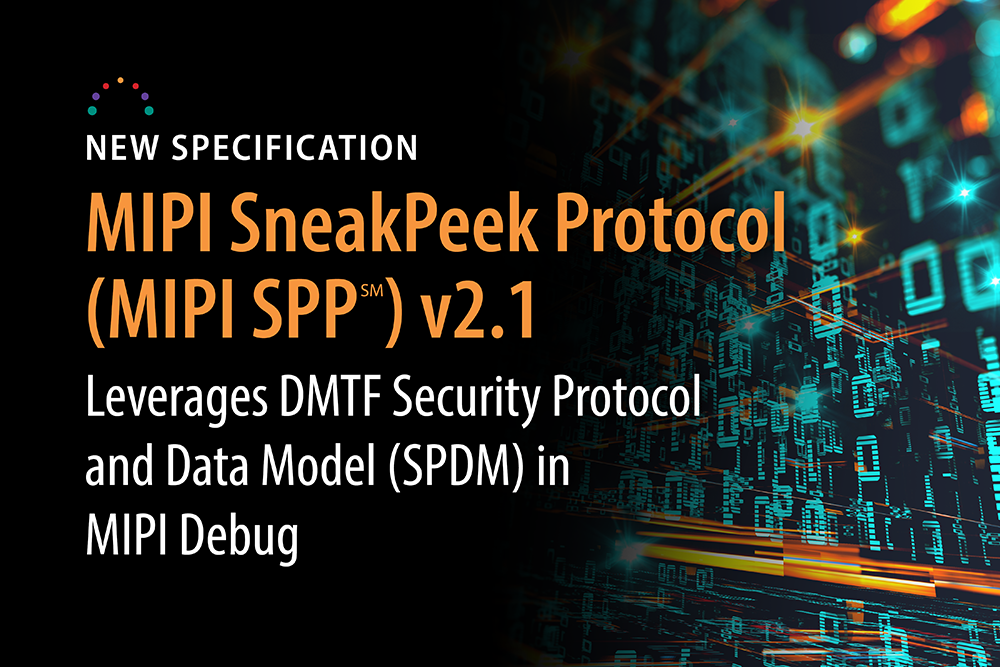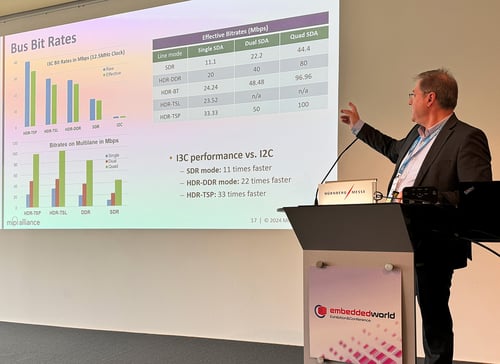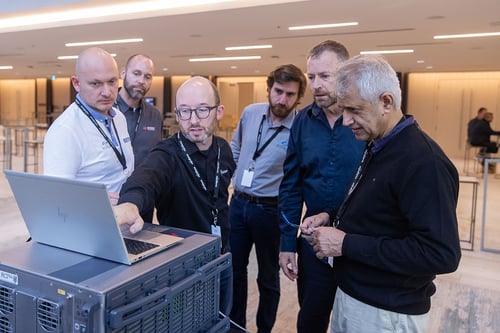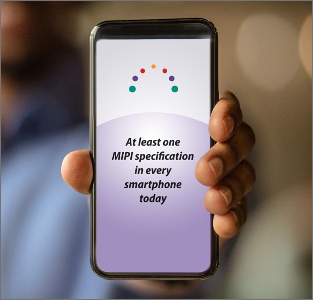1 min read
New Features in MIPI SPP v2.1 Advance Secure Debug
![]() Enrico Carrieri, Chair of the MIPI Debug Working Group
:
28 September 2023
Enrico Carrieri, Chair of the MIPI Debug Working Group
:
28 September 2023

- News & Events
- News
- Blog
A new version of the publicly available MIPI SneakPeek Protocol (MIPI SPP℠)–v2.1, released in May–is the latest step in MIPI’s advancement of a framework for secure debug communication.
The SPP specification is used to communicate between a debug test system (DTS) and a target system (TS), facilitating the operation of a TS to be debugged. The new v2.1 creates a mechanism, a “Secure Communication Manager Access Space,” by which control messages can be transferred to a security agent within a given system-on-chip (SoC). This version defines that the control messages leverage the industry-standard DMTF Security Protocol and Data Model (SPDM) for formatting data payloads and flows between the DTS and the TS security agent.
SPDM on MIPI SPP
SPDM is developed by the DMTF (formerly known as the Distributed Management Task Force) to define authentication, attestation and key exchange for security in cloud, virtualization, network, servers, storage and a variety of other infrastructures.
Mapping DMTF SPDM on MIPI SPP provides a common, transport-agnostic mechanism to enable and manage a secure communication channel in any application space. This is crucial because debug is not a process that is typically undertaken within a controlled lab environment. SPP v2.1 is a step toward enabling secure debug in the sometimes hostile environments that system designers encounter in the real-world field of implementation.
Replacement of Deprecated Terms
In addition to clarifying the specification, MIPI SPP v2.1 also replaces deprecated, objectionable terms ("master" and "slave") with inclusive language ("controller" and "target") that also accurately reflects the functions of technical devices. These changes are in keeping with an initiative recommended by the MIPI Technical Steering Group (TSG) and directed by the MIPI board.
Like all of the MIPI debug and trace specifications, SPP is available for public download. Members of MIPI Alliance, however, enjoy benefits such as access to relevant licenses and opportunities to participate in development activities and other events.
To learn more and contribute to the ongoing refinement of SPP and other debug and trace specifications, visit the MIPI Debug Working Group page.






